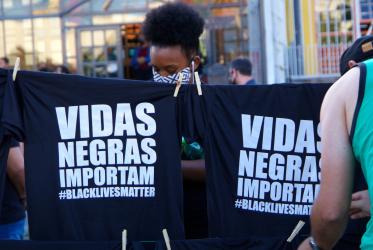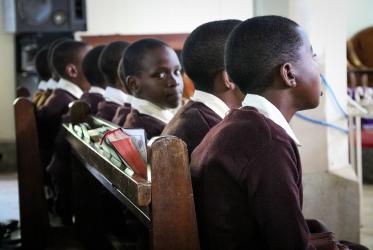Displaying 1 - 19 of 19
ACT Alliance general secretary: “equity is not negotiable”
26 September 2023
La respuesta a las necesidades humanitarias en Ucrania
27 September 2022
Ukraine: Responding to humanitarian need
08 September 2022
Webinar explores intersection of debt cancellation and anti-racism
09 December 2021













